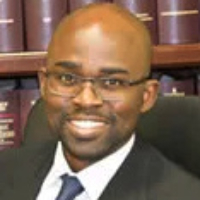Knoxville RICO Act Lawyer, Maryland
Sponsored Law Firm
-
 x
x

Click For More Info:
-
Law Office of Mark S. Guralnick
55 Madison Avenue 4th Floor Morristown, NJ 07960» view mapCriminal Defense Law Dedicated. Fearless. Successful.
Mark S. Guralnick and his legal team have helped clients throughout the USA and across the world by applying unparalleled dedication and hard work to each case.
800-399-8371
Not enough matches for Knoxville RICO Act lawyer.
Below are all Knoxville Criminal lawyers.
Ayodeji Oyekunle Badaki
✓ VERIFIEDDivorce & Family Law, Accident & Injury, Criminal, Bankruptcy & Debt
Ayodeji Badaki holds a J.D. from the University of Baltimore School of Law as well as an LL.M. from the Georgetown University Law Center where he was ... (more)
Eugene L Souder
Child Custody, Divorce & Family Law, Criminal, Accident & Injury
Status: In Good Standing Licensed: 27 Years
Imad Soubra
Divorce & Family Law, Criminal, Bankruptcy & Debt, Accident & Injury, Divorce
Status: In Good Standing
Mary Anne R Day
Family Law, Divorce & Family Law, Criminal, Consumer Protection
Status: In Good Standing
John Robert Discavage
Traffic, Intellectual Property, Child Custody, Criminal, Accident & Injury
Status: In Good Standing
Stephen Gordon Slater
Social Security -- Disability, Traffic, DUI-DWI, Estate, Wills
Status: In Good Standing Licensed: 22 Years
 Mark Guralnick Morristown, NJ
Mark Guralnick Morristown, NJ AboutLaw Office of Mark S. Guralnick
AboutLaw Office of Mark S. Guralnick Practice AreasExpertise
Practice AreasExpertise

